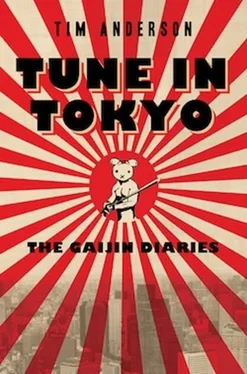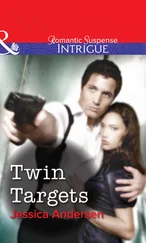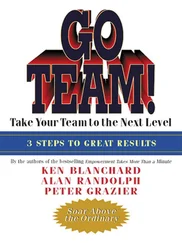I hesitate to look at the music as an old demon creeps into my consciousness: Though I’d started playing violin when I was seven, switching to viola in my twenties, I don’t sight-read music very well. When I took up the violin, I learned via the Suzuki method, which emphasizes ear training at the expense of music reading. Though I later learned to sight-read, it was always a struggle for me, and my natural tendency was always to ignore whatever sheet music my teacher had assigned for the week and just pick things out that I wanted to play (“Edelweiss,” “You’re the One that I Want,” the themes from E.T.: The Extra Terrestrial , The Golden Girls , or L.A. Law ). Once I knew what a piece was supposed to sound like-either by listening to my teacher play it or by obtaining a recording of it-I could rattle it off with relative ease. But given the same piece of music and no assistance whatsoever, I’m doomed. Doomed.
Long story short, I am a string player deathly afraid of sheet music.
This phobia would’ve been my undoing had I been playing in the era of Mozart, when rehearsal time was extremely limited and most people sat down and just sight-read their way to riches, glory, and designer pantaloons. Had I had the gall to ask Wolfgang before a performance to just hum a few bars of what I was meant to play, I would’ve been laughed off the stage, my fluffy white wig a web of tomatoes, eggs, and spittle, my legs beneath my secondhand pantaloons lashed repeatedly by violin bows, my fluffy blouse ripped to shreds and set on fire, my head nearly split open with an almond cheese log.
Thankfully, I’m living in more liberated and patient times. I have a look at the first movement, and it seems pretty manageable. Then I turn to the second movement and nearly faint. The notes are crowded together on the page like, well, like Tokyoites of all shapes and sizes standing, sitting, swaying, knocking about, picking fights with each other, and looking up each other’s skirts on a rush-hour train. I stare at the two pages comprising the movement and panic, feeling like a complete phony, desperate for Toru to just agree to play sitcom theme songs and familiar show tunes and let me off the hook.
But then I think, “Hey, I never shy away from a challenge.” But then I think, “Actually, Tim, you ALWAYS shy away from a challenge. I’ve never seen you NOT shy away from a challenge.”
“This looks fun,” I say to Toru, trying to wipe the fear off my face, and we make a date for me to come to his house in Yokohama’s Higashi Totsuka area and give Brahms a whirl.
Meanwhile, I get this intriguing reply to my ad:
Hi, My name is Nabe, I saw your ad in Metropolis. I am interested in your viola to join the project that I and my freinds are doing. The project is a kind of a musical community. We have not given name for. But, the main idea or theme of this project is making music with others who have totally different background each other, but nobody force nobody. In the other words, it could be expressed as “Encounter with others through music or sound.” Well, all you need is enthusiasm and free mind about sound. So, if you are interested in our project, give me a e-mail. Of course, you can ask me any question about the project, I also got a lot of things to tell you about it. Maybe, to begin with, we should meet for each other and share the idea. In addition, I play the guitar (both electric and accoustic), didgereedoo, harmonica, termin, etc. I am looking forward your response!?
This sounds great. It is exactly the kind of laid-back, creativity-friendly atmosphere I am seeking. Just people playing music for fun. Although the project sounds like a glorified jam session, and I can’t really picture myself “jamming” on the viola, I figure what the hell, at least I won’t have to read music. I e-mail him back, saying I’d love to join his group.
The next Sunday I show up at the practice studio Nabe has reserved for us in Koenji, an East Village-ish neighborhood full of college students and aspiring musicians and artists in West Tokyo. Assembled at the studio are two guitarists (Nabe and Ryunosuke), a drummer (Kiyoshi), a tuba player (Masako), a bassist (Yu), and a viola player (me). The studio, like every other place in Tokyo, is small and cramped, and since I’m the last to arrive, the only space left is that next to Masako and her tuba, so I squeeze past Nabe, Ryunosuke, and Yu and all their amps, stepping over the tangle of black cords on the floor, and pivot into an empty chair next to Masako after dropping my viola on her foot.
“

!” I say to her. “Sorry!”
“

!” she replies. “It’s OK!”
Nabe, ostensibly the leader of our band of misfits, had spent four years in Tennessee when he was younger, which is why he can speak English. Unfortunately, no one else does, so he acts as interpreter when my Japanese fails me, which is almost every time I speak.
He gives a short greeting to everyone and talks for a few minutes in Japanese, presumably about why we are here, what we are going to do, and who the handsome white stranger is sitting next to Masako and her tuba.
Then he switches to English and says to me, “I just tell them that we going to just plug in and play and jam for little while and see how we can make a music. Is OK?”
“Sure, sure,” I nod, wishing I had an amp for my viola.
The guitarists plug everything in and start some soft strumming, and Masako and I play some scales to get warmed up. It’s nice to hear the music bouncing around me, and everyone seems to be tuning in to each other and getting in the zone. Things go a little quiet as everyone decides they’re warmed up enough. Then the drummer hits his drumsticks together and launches into a mid-tempo beat. From there, everyone just joins in whenever they feel the urge. The result is a sound not unlike a car being eaten by a lawnmower. The drums bicker with the bass, the guitars vie for supremacy, and the tuba trudges along underneath like a tortoise at a NASCAR speedway. And me? My viola is buried far, far beneath all of it, gasping for air, begging for its life and the life of its strings.
Our noise lasts for a good fifteen minutes without pause. After the first few minutes, though, I just give up trying to improvise anything because no one will hear it anyway, and I don’t want any accidental genius to be wasted. I start practicing my scales and then launch into the first movement of the Brahms sonatas that Toru and I had picked out, figuring I could use the practice. It is painfully obvious that, as great and romantic as Nabe’s idea of having “free mind about sound” is, some type of structure and order will be necessary in order to make music that doesn’t make people vomit.
As each of us tire of playing, the noise comes to a gradual finish, the last sputtering sounds that of the rumbling snare drum and a lonely little tuba. We sit in silence for a few moments, not sure what to say. Should we apologize to each other? Shake hands and say “good game”? Sniff some paint thinner and try again?
We try again without any greater success, though Yu does mix things up by putting down her bass and yelping into the nearest microphone. This time I detect more of a reggae vibe, and my viola tries its best to fit in. Things shift gears several times before finishing semi-triumphantly with a standoff between Yu and Masako’s tuba bouncing atop Kiyoshi’s ominous drumbeat, which, if memory serves, is the same as that in the song “In the Air Tonight” by Phil Collins. (Is there no escaping the Genesis?)
Читать дальше














